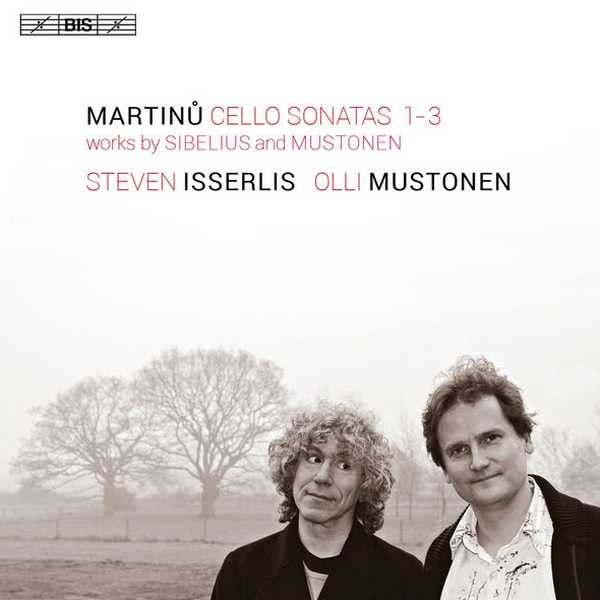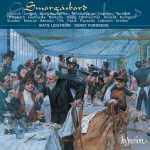
Composer: Bohuslav Martinů, Olli Mustonen, Jean Sibelius
Performer: Steven Isserlis, Olli Mustonen
Format: FLAC (tracks)
Label: BIS
Catalogue: BIS2042
Release: 2014
Size: 327 MB
Recovery: +3%
Scan: yes
Martinů: Sonata for Cello & Piano No. 1, H. 277
01. I. Poco allegro
02. II. Lento
03. III. Allegro con brio
Mustonen: Cello Sonata
04. I. —
05. II. Andantino
06. III. Precipitato
07. IV. —
Martinů: Sonata for Cello & Piano No. 2, H. 286
08. I. Allegro
09. II. Largo
10. III. Allegro commodo
11. Sibelius: Malinconia, Op. 20
Martinů: Sonata for Cello & Piano No. 3, H. 340
12. I. Poco andante
13. II. Andante
14. III. Allegro (Ma non Presto)
Bohuslav Martinů produced a huge catalogue of chamber music for a variety of instruments. The cello seems to have occupied a special place in his heart, however, and the three cello sonatas were probably of great significance to him; each of them has an entirely distinct character and appears to owe something to extra-musical events. The most dramatic of the three, the First Sonata was written in Paris in May 1939, shortly after Martinů’s Czech homeland had fallen to the Nazis. Having fled Paris in 1940, Martinů composed Sonata No.2 shortly after reaching safety in the USA, and the work celebrates the rhythms and the verve of the new world. Although written in memory of a deceased friend, the Third Sonata is still more celebratory: even the slow movement is pastoral rather than tragic, while the finale – or at least its ending – ‘would hardly be out of place at a rodeo’, as Steven Isserlis writes in his own liner notes to this disc. Throughout the sonata there are other hints of an American influence, but as Martinů himself wrote around the time of its composition: ‘My work is still Czech and connected to my homeland.’ Interspersed with these ‘Czech’, mid-20th century sonatas are two Finnish works composed at the very edges of that century. Jean Sibelius’ Malinconia was written in 1900, shortly after the death of the composer’s infant daughter Kirsti. Deeply personal, but also suffused with the sounds of nature, it is an extraordinary piece –‘a tone poem for cello and piano’ is how Isserlis describes it. The final work of the programme is a Sonata from 2006 by Olli Mustonen, who has composed for almost as long as he has played the piano. Isserlis and Mustonen have been friends and collaborators for close to twenty years, and now join forces in this exciting and varied programme.



